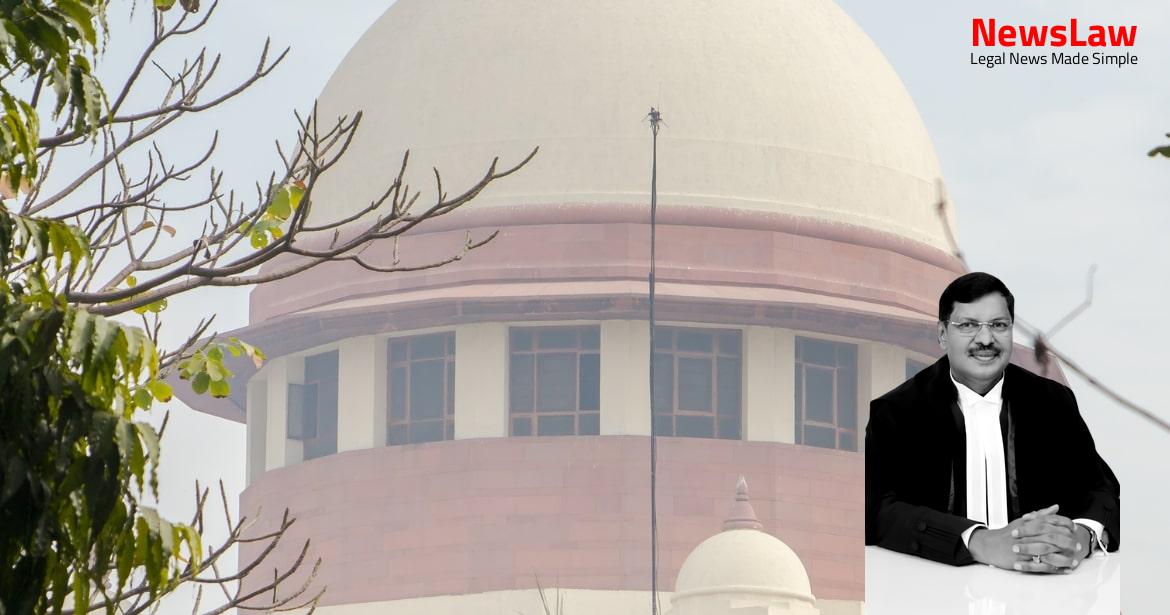In a recent legal case concerning land settlement, the court’s analysis focused on the vital aspect of meeting eligibility criteria for allocation based on war service. The decision to set aside previous orders highlights the significance of thorough examination and adherence to specified requirements in such matters. This blog elucidates the court’s detailed legal analysis in the case.
Facts
- The writ petitioner filed an application for settlement of land on 17.6.2011 based on her husband’s participation in the Indo-China War.
- The Tehsildar, Barang passed an order to allot 5 acres of land to the writ petitioner.
- A subsequent order by Tehsildar on 3.9.2012 highlighted the absence of eligibility certificates from the Home Department or State Sainik Board.
- A resolution on 10.3.2014 modified the policy to consider monetary grant instead of land allocation.
- The present impugned order in the writ petition was passed subsequently.
- The State Government rejected the lease application on 24.7.2013, pending the report from the Superintendent of Police, Vigilance, Cuttack.
- The Deputy Superintendent of Police completed the inquiry and recommended action against various authorities for negligence and filing incorrect affidavits in the High Court.
- This led to the filing of another Writ Petition (C) No 19536 of 2013 to challenge the rejection order of 24.7.2013.
Also Read: Interpretation of Will and Hindu Succession Act: Legal Analysis
Analysis
- Information obtained under the Right to Information Act revealed that the deceased did not work in the forward area during the relevant period from 1962 to 1964.
- The deceased was not deputed in the forward area during the specified period as per records.
- The deceased only discharged field service from 27.2.1955 to 17.12.1956.
- The deceased did not satisfy the basic requirement of having served the nation during the period of aggression from 1962 to 1964.
- There was no certificate from the Unit Command proving the deceased had worked in the forward area during the relevant period.
- The subsequent information clarified that the deceased was transferred to reserve on 15.11.1962 and recalled in February 1963.
- A Government resolution stated that personnel who served in the forward areas from 26.10.1962 to 31.1.1964 would be considered eligible with a certificate from the Unit Command.
- None of the authorities examined whether the deceased had worked in the forward area despite the importance of this fact.
- The inquiry report recorded the writ petitioner’s statement of war service from 7.12.1943 to 15.8.1956 and field service from 27.2.1955 to 17.12.1956.
- The deceased individual did not work in the forward area during the specified time period
- Contentions of the writ petitioner are not sustainable based on this fact
Also Read: Analysis of High Court’s Decision on Registration Certificate and Onus of Proof in Sales Tax Case
Decision
- The appeals have been allowed and the writ petition has been dismissed.
- The order passed by the High Court has been set aside.
Also Read: Legal Analysis of Domestic Inquiry and Misconduct in Employment Case
Case Title: STATE OF ORRISA Vs. PREMALATA MOHAPATRA (DEAD) THR. LRS. (2021 INSC 695)
Case Number: C.A. No.-006534-006535 / 2021



